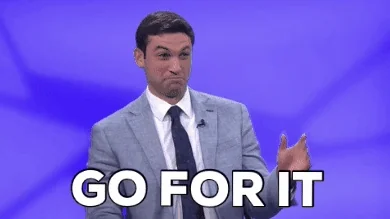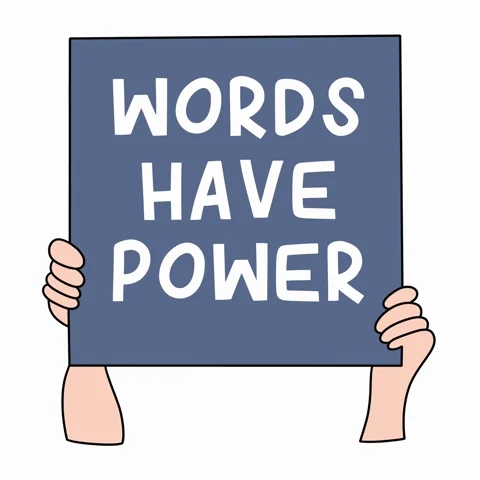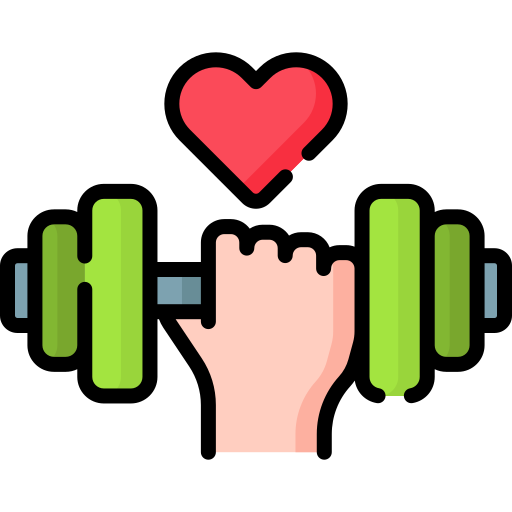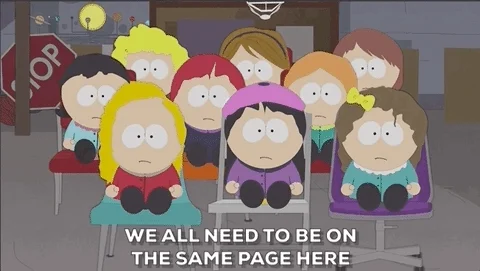Wondering how you can make your words more persuasive — without sounding pushy?
Want to get your boss to approve your idea?
Convince a friend to try something new?
Or maybe just get your coworker to respond to emails on time?
Here’s the trick: It’s not always what you say, it’s HOW you say it.

This is called the framing effect, and it’s a technique used in marketing, leadership, and everyday conversations to influence decisions. The way you present an idea can completely change how people react.
The best part? The framing effect is a tool you can easily apply in your daily life to get people to say "yes" — whether at work, with friends, or in other situations.
Why the Framing Effect Works
Would you rather buy yogurtthat’s “90% fat-free” or “10% fat”? Same product — but one sounds way more appealing. That’s the power of framing.
Now think about saying, “Who wants to join the fun?” in a flat tone. If there’s no excitement or clear reason to care, even something “fun” can sound boring.

The framing effect acts like a mental filter — it changes how we see choices. It guides attention to what really matters, like the benefits, the outcome, or how something aligns with someone’s goals.
People don’t just look at facts logically. How information is presented and how it makes them feel can strongly influence reactions and decisions. When something sounds like a win, it’s easier to say yes. When it sounds like a hassle or a loss, people naturally back off.
You’re still being honest — you’re just saying it in a way that lands better.
Same Idea, Better Words
 Think phrasing doesn’t matter? Think again. Small changes in your words can have a big impact.
Think phrasing doesn’t matter? Think again. Small changes in your words can have a big impact.
For example:

1. Getting Your Boss to Approve Your Idea
Don’t say: “I think we should try this new approach.”
Say this instead: “This strategy has worked well for other teams, and I believe it could help us hit our goals faster. Can I walk you through it?”
Why the framing effect works: You’re backing it up with evidence and making it a collaborative discussion instead of a personal opinion.

2. Getting a Coworker to Respond Faster
Don’t say: “Can you answer my emails sooner?”
Say this instead: “If we can keep responses within a day, it’ll help us stay on track and avoid last-minute stress.”
Why the framing effect works: You’re framing it as a team effort rather than a demand.

3. Encouraging a Friend to Start a Healthy Habit
Don’t say: “You should go to the gym more.”
Say this instead: “You’ve been wanting to feel more energized — working out could really help with that!”
Why the framing effect works: You’re connecting the action to something they already care about.

4. Asking Your Manager for More Responsibility
Don’t say: “Can I take on bigger projects?”
Say this instead: “I’d love to contribute more to the team. Could I take on a project that helps me grow while supporting our goals?”
Why the framing effect works: You’re showing initiative and alignment with team objectives instead of just asking for more work.
Framing Effect Scenario 1: The Group Presentation
Jenan is working on a group presentation that's due in two days. Everyone on the team has finished their part — except Leo. Jenan has already reminded him a couple of times, and now she’s getting nervous that his delay will throw off the entire project.
Leo finally replies: “It’s been a crazy week. I'll try to submit it tomorrow.”
Jenan wants to keep the project on track — without sounding bossy or confrontational.

What could Jenan say using the framing effect to encourage Leo to finish his work?
A. “You’re the only one who hasn’t done their part. We need it today.”
B. “We’re all depending on you — finishing tonight sets us up for success.”
C. “Seriously? Everyone else did their part. Just do yours.”
D. “If you don’t finish it today, it’s not fair to the rest of us.”
Quiz
What could Jenan say using the framing effect to encourage Leo to finish his work?
Framing Effect Scenario 2: Early Meeting? No Problem!
Your team is struggling to make progress on a challenging project, and the deadline’s coming fast. You realize the best shot at completing things is a focused session early Friday morning — before everyone gets buried in emails and meetings.
But your teammate Kai says, “Morning meetings never work for me. I’m too foggy to think straight.”

You know pushing harder won’t help, so you decide to reframe what you say.
How can you reframe your words to get Kai to agree?
A. “We need to meet at 8. It’s the only time everyone’s free.”
B. “Just show up at 8, everyone else is.”
C. “If we start at 8, we’ll have a calm window to solve the case, leaving the rest of the day free and the weekend worry-free.”
D. “If we don’t meet early, we won’t finish, and it’ll be a mess for all of us.”
Quiz
What should you say to get Kai to agree?
Take Action

Ready to use the framing effect to be more persuasive?
Your feedback matters to us.
This Byte helped me better understand the topic.
